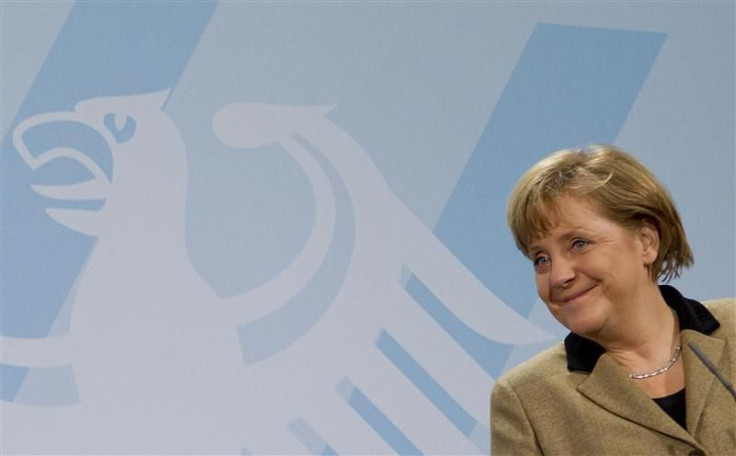As Euro Economy Stagnates, German Business Confidence Up

A closely-watched indicator of German business confidence jumped in February, the fourth month in a row the index has risen, suggesting that the nation's economy is continuing to grow at a moderate pace even as the wider euro zone experiences near-recessionary stagnation.
Munich-based Ifo, one of Germany's largest economic think tanks, said its index of the nation's business climate rose to 109.6, from 108.3 in January, largely driven by a jump in the part of the index that measures expectations. These figures exceeded economist consensus expectations of a jump to 108.8, according to the Dow Jones Newswires
Klaus Abberger, a top economist at Ifo, said the survey of about 7,000 German companies used to tabulate the index demonstrated that despite a weak winter quarter, Germany is not in a recession, according to the Wall Street Journal.
The news from Munich stands in contrast to other data released previously by the European Commission, which forecasts a euro area contraction of 0.3 percent for the year.
They also look favorable compared to purchasing manager's data released Wednesday, which was positive, but less markedly so than in January. This data was driven down by depressed figures for current output and service activity.
(The German confidence results are an unequivocally strong survey containing upside news across all major components, in contrast to Wednesday's PMI readings, James Ashley, a senior European economist at RBC Capital Markets, told MarketWatch.
Germany's export-led economy, which followed the rest of the euro zone into a slight slowdown during the fourth quarter of last year, has been able to bounce back in the past few months more vigorously than the peripheral economies of highly-indebted countries like Greece, Spain and Italy. Those countries are expected to fall into a technical recession -- defined as two consecutive quarters of economic contraction -- this year.
© Copyright IBTimes 2024. All rights reserved.











